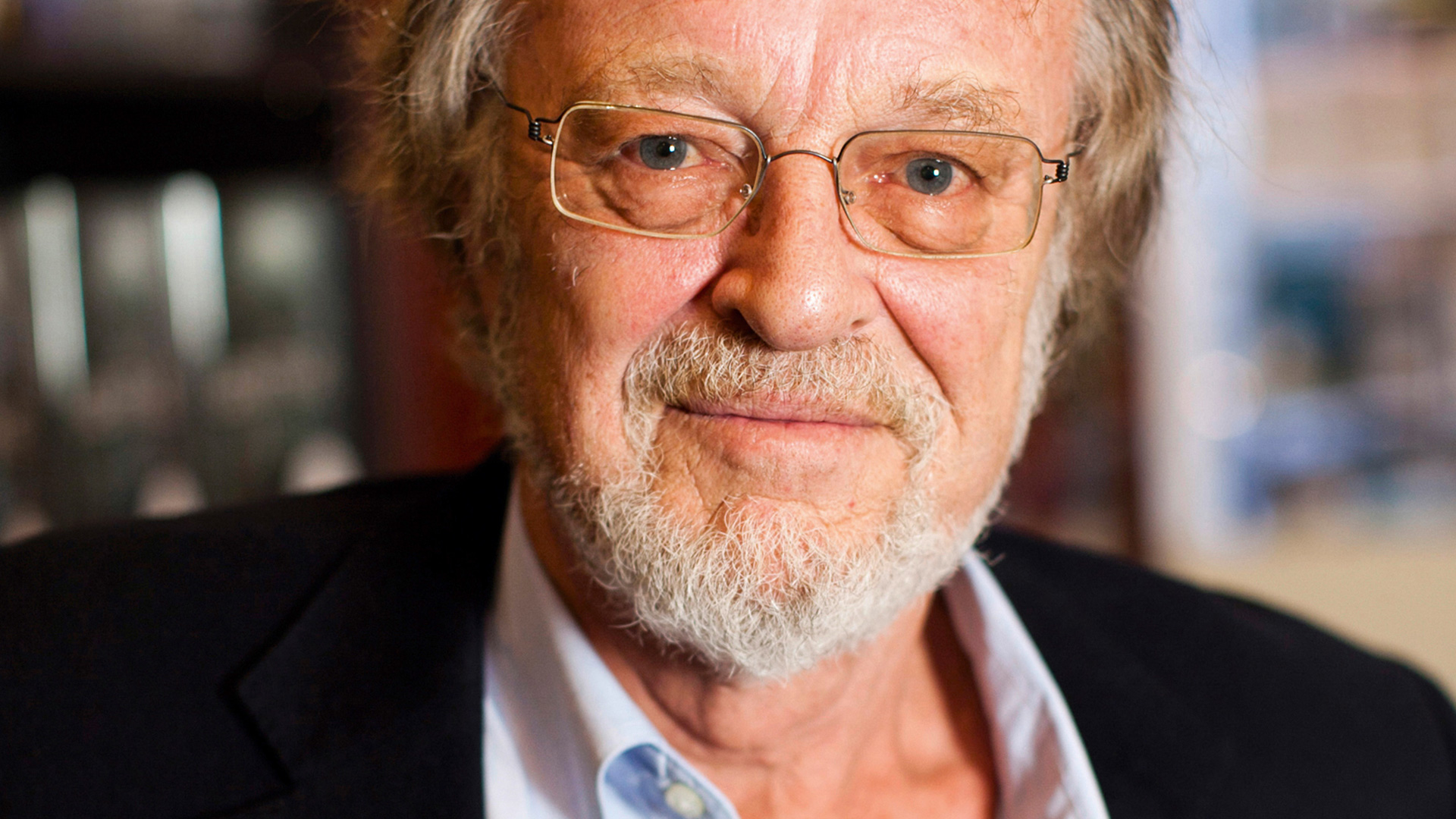You are viewing your 1 free article this month. Login to read more articles.
Bernard Cornwell | 'I’m often asked if I am a historian and I say no, I am a storyteller, that’s my job'
Thirty-five years after first tackling the Napoleonic Wars with the Sharpe series that made his name, Bernard Cornwell is returning to the era for his non-fiction début. He is going straight to the denouement by tackling Waterloo, and Sean Bean is nowhere in sight: this is an hour-by-hour account of the climactic battle of 18th June 1815.
“Although there is an enormous literature on Waterloo, really since David Howarth’s A Near Run Thing, which has got to be 50 years old by now, there isn’t a book that tells the interested reader what was it like to be there,” he explains. “So much of military history just seems to be so dry. I really wanted to produce a book, [about] not just what happened and why it happened, but what the hell was it like at that place, on that day.” The short answer is extremely noisy, extremely smoky and extremely dangerous.
Cornwell’s account starts with a brief summary of the essential background to 18th June: Napoleon’s escape from allied captivity on Elba, his dash to Paris and his race to take on the British and the Prussians before they can join forces against him. Cornwell covers in more detail the two minor battles of Ligny and Quatre Bras, which occur just before Waterloo, and then concentrates his main attention on the great battle itself.
The basic events of the day are well known, but worth repeating. At Ligny, Napoleon gave the Prussians—under the command of Gebhard von Blücher—a bloody nose, and they retreated eastwards; at Quatre Bras, Napoleon forced the British back, further away from their allies. Wellington retreats to a shallow ridge at Waterloo, desperately signalling the Prussians to come to his aid. Napoleon confronts Wellington head on, mounting a series of increasingly frenzied attacks on the British, but fails to break through, before the Prussians arrive very late in the day and save Wellington’s bacon. “Ninety-five per cent of the work of writing fiction is getting the plot right and, of course, I didn’t have that problem with Waterloo,” says Cornwell.
Everyone who survived Waterloo realised pretty rapidly that they had been present at a pivotal battle, so there is a wealth of eye-witness letters, accounts and memoirs to sift through. Cornwell doesn’t claim to have found much new material—that isn’t the point of a readable synthesis like his and the battle has been heavily mined by previous historians—but he is proud of one new letter that helps to prove Wellington did not betray Blücher.
Betrayal
There is a school of thought that Wellington deliberately failed to come to the aid of the Prussians at Ligny, two days before Waterloo. The new letter establishes that Wellington’s patrols were in contact with French lancers in another part of the theatre, to his west on the Mons road, a contact that could have been the precursor to a larger French attack well away from the Prussians at Ligny. Hence Wellington’s refusal to concentrate his army in support of Blücher, a failure later cited as evidence of betrayal.
After the build-up, Cornwell devotes nearly 200 pages to an hour-by-hour account of the epic struggle of 18th June itself. The battle was not just a melee of thousands of men firing at each other; it has at least five distinct but overlapping episodes involving artillery, cavalry and infantry that Cornwell teases out and assembles into a compelling narrative.
He knows the weaponry and the tactics of the period intimately. For example, he explains the difference between a column and a line, how a British infantry square presented a “hedgehog of steel and shot” a horse would shy away from charging, and soldiers were trained to hold their fire until their target was only 20 yards away (because musket fire was so inaccurate).
He also finds the telling detail to hold the reader. The famous anecdotes are all present and correct: “A final cannon shot seared past Wellington, missing him by inches, and took off his second in command’s leg. ‘By God, Sir,’ Lord Uxbridge is supposed to have said, ‘I’ve lost my leg!’ ‘By God, Sir’ the Duke responded, ‘so you have.’” We also learn that shrapnel was named after someone called Henry Shrapnel; how, if you were looking directly at an enemy cannon when it fired, you could see the cannonball flying towards you; and how the battle would have been lost without the contribution of Scottish regiments.
The day’s fighting was intense, with thousands of men crammed into a tiny area, cavalry charges so dense that dead horses could not fall over, and much of the fighting almost medieval, with swords and bayonets to the fore. By nightfall, the battlefield saw 12,000 bodies in an area of three square miles, plus another 40,000 wounded.
So if that is the plot, what of the characters? Wellington is meticulous, effective, brave but ultimately chilly. Napoleon is a genius having an off day, who never quite spots the moment to seal victory with a co-ordinated attack, and he is ultimately let down by over-delegating to his marshals, especially the impulsive Ney. Blücher, the hard-driving Prussian commander nicknamed Marshall Forwards, is Cornwell’s own favourite
War is simple
“Blücher is a great guy. He has an enormous talent for reading a battlefield. It’s instinctive, and he has a great talent for leading men—there is not a single German memoir that doesn’t describe just how much he is loved by his men. It was Napoleon who kept saying war is simple—though I don’t believe that he thought that for a second—but Blücher does it: show me the enemy and I will march towards him. He marches to the sound of the guns. My favourite Blücher line is the one after the war, [when] he is invited to London to celebrate, he looks at London from Blackheath and says: ‘What a city to sack!’ You’ve got to like him.”
Cornwell’s approach is straightforward narrative history, treating the battle as a tale with a beginning, middle and end. “There is an advantage in being a storyteller when you come to tell a story. I’m often asked if I am a historian and I say no, I am a storyteller, that’s my job. There are deliberate moments in the book where I set you up and then change subject, and I know exactly what I am doing. You are saying: ‘Fuck, Cornwell, I want to know what happens’. And all you can do is keep reading, but that’s deliberate.”
It’s likely that this excursion into non-fiction will be a one-off. Cornwell is deep into his Saxon novels, an epic series set in early England. It has at least three books to go before it ends in the vital but mysterious Battle of Brunanburh in 937. The next instalment is out in October; Cornwell will be over from the US to promote both books this autumn. Nor have we necessarily seen the last of Sharpe. “I never say never and I’ve actually saved a battle for my retirement, one of the battles in the Pyrenees.”
And why does he always write about war? “Essentially I write adventure stories and war gives you this wonderful off-the-shelf background in which there is all this mayhem, all sorts of moral restraints are lifted and all sorts of chaos is going on, and that’s an interesting background for an adventure story. I’m also interested in how people react to the lifting of those moral restraints. You’ve got a choice at some point: whether you are going to behave abominably or whether you’re going to keep some sort of shreds of decency.” At Waterloo, there are ample examples of both.
Metadata
Publication 11.09.14
Formats HB/EB/AB
ISBN 9780007539383/ 90/ 68062
Rights US (HarperCollins) Brazil (Editora Record), Spain (Edhasa), Denmark (Lindhardt of Ringhof) and Germany (Rowohlt) to date
Editor Myles Archibald
Agent Toby Eady
CV
1944 Born in London
1963-1966 Read History at the University of London
1980 First book, Sharpe’s Eagle, released. Twenty-four Sharpe novels have been published to date
1993-1997 "Sharpe" TV series runs, starring Sean Bean
2004 Saxon series begins. The eighth novel, The Empty Throne, is released in October









